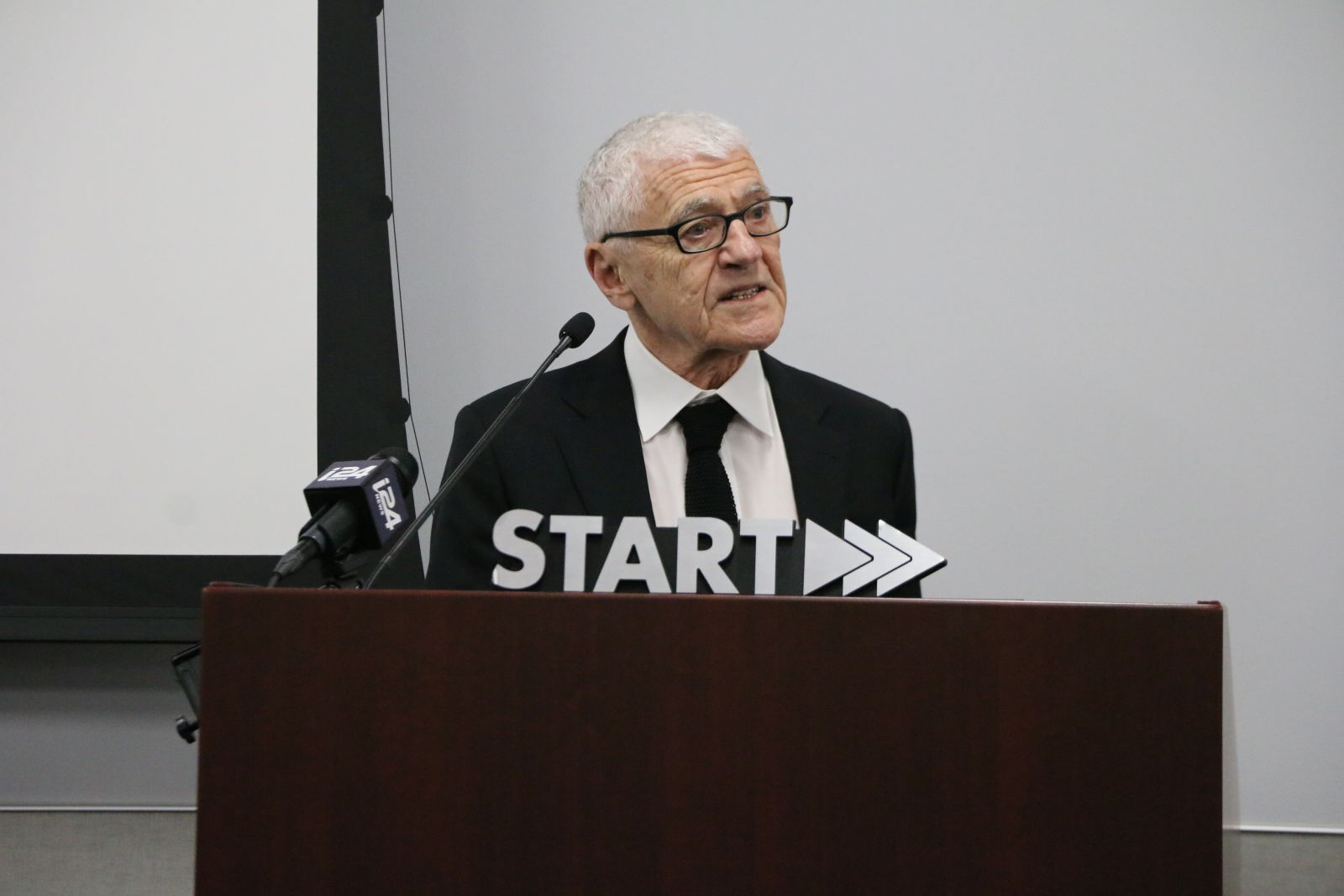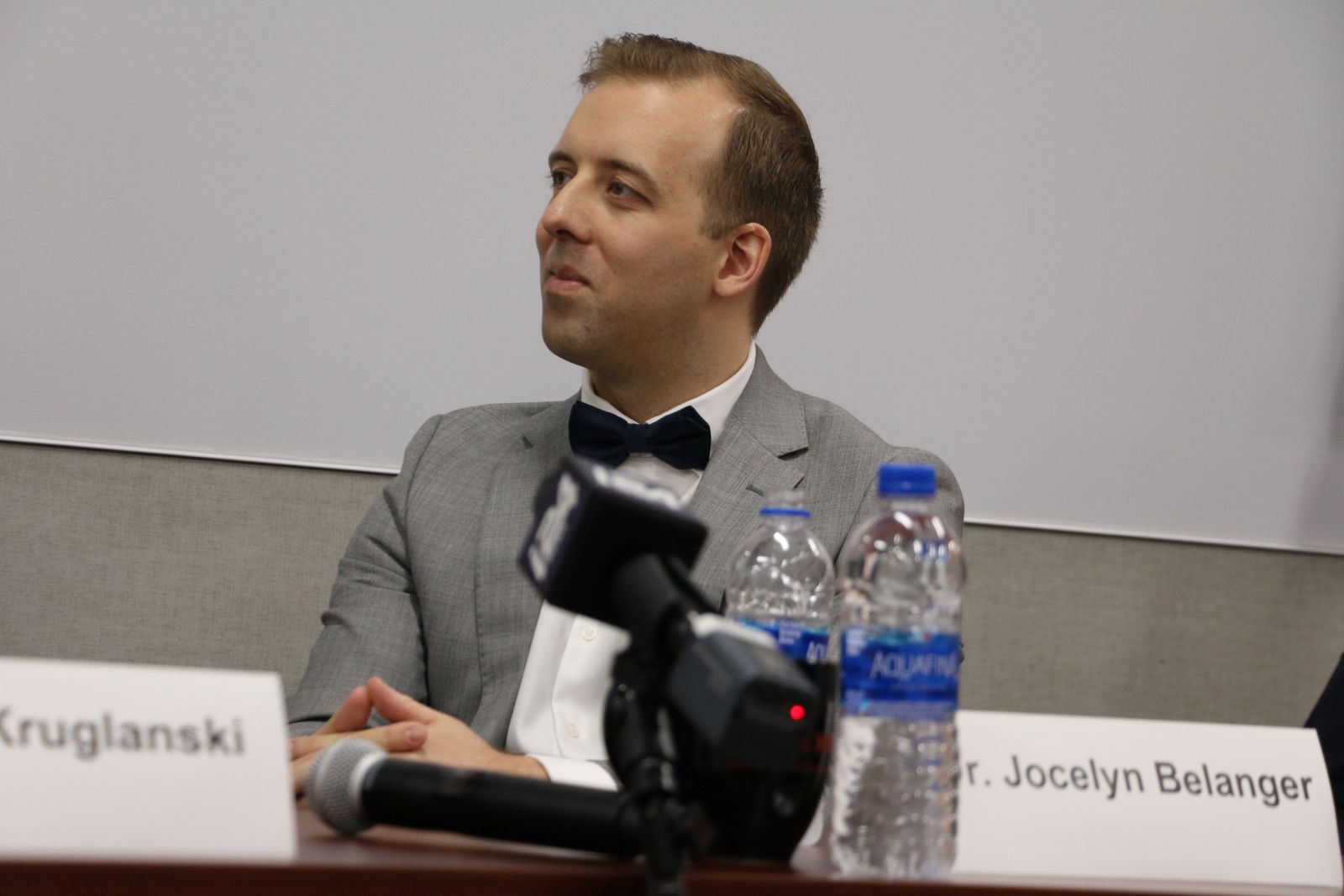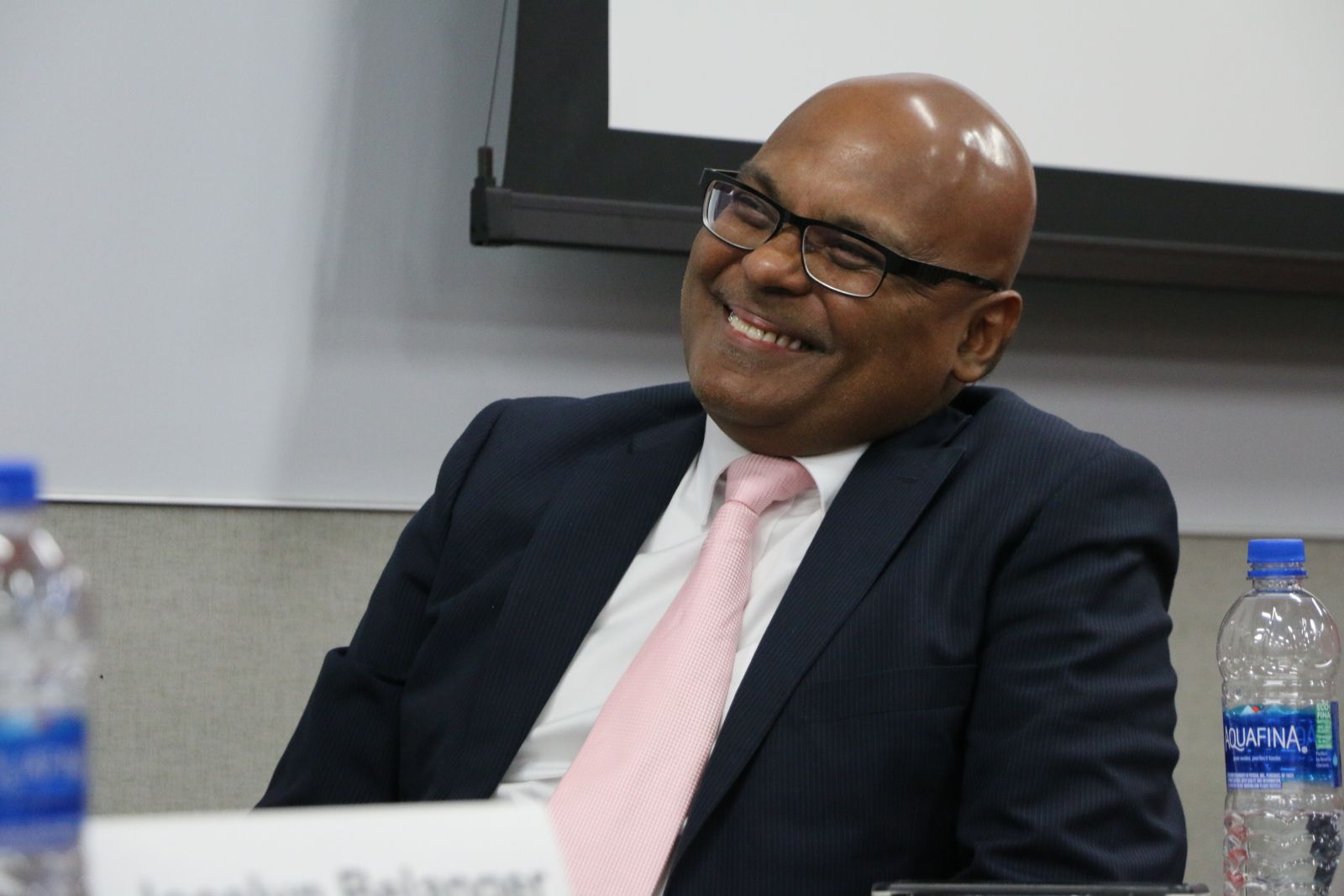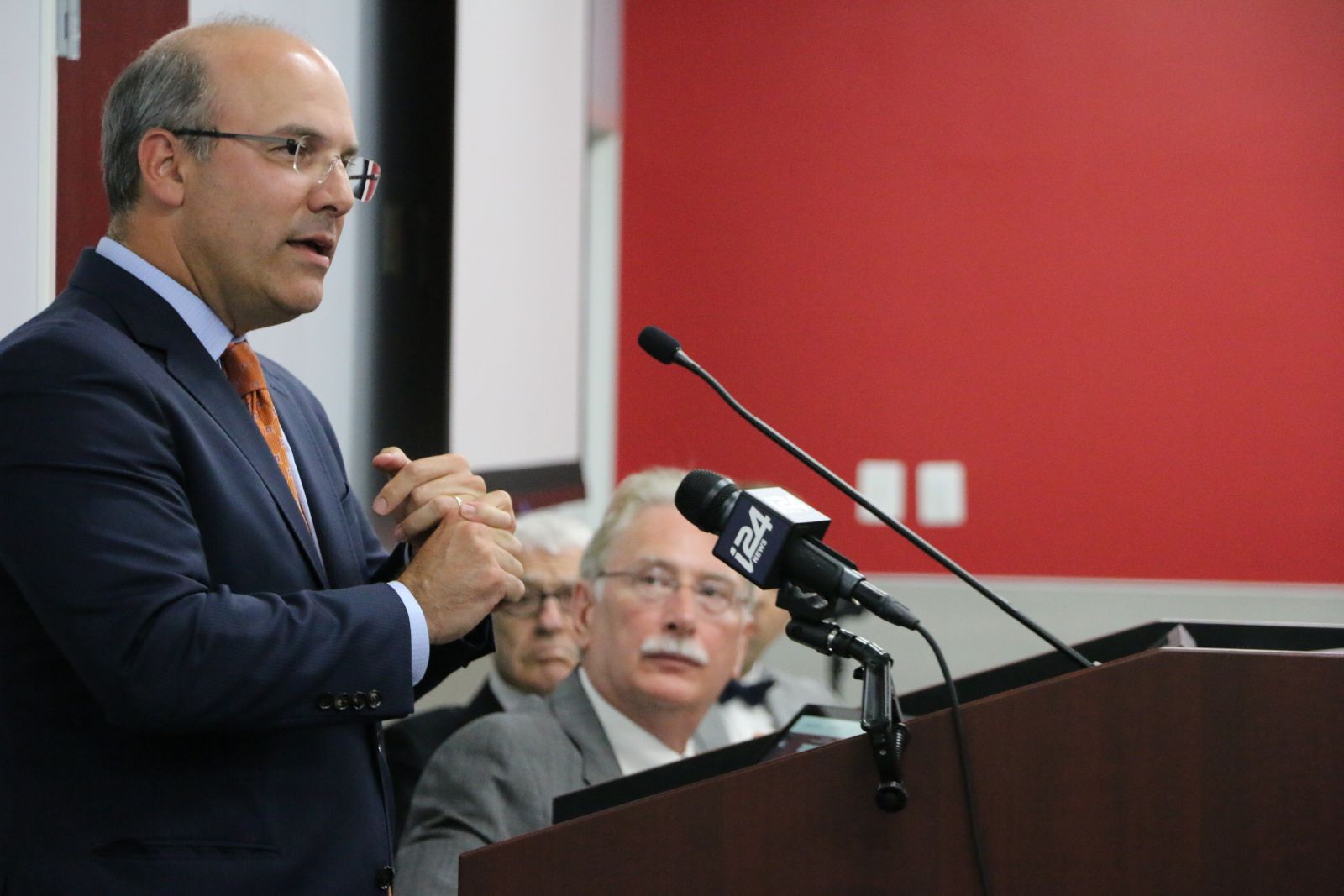
In June, START researcher Arie Kruglanski and his co-authors Jocelyn J. Bélanger and Rohan Gunaratna came to START to launch their new book on radicalization.
The book, “The Three Pillars of Radicalization: Needs, Narratives, and Networks,” explores a new model of radicalization that identifies factors underlying the individual's quest for significance. Synthesizing varied empirical evidence, the book reinterprets prior theories of radicalization and examines major issues in deradicalization and recidivism, which will only become more relevant as communities continue to negotiate the threat of extremism.
START Founding Director Gary LaFree moderated the panel discussion, and provided opening remarks.
“I think ‘The Three Pillars of Radicalization’ is a great example of the kind of symbiotic relationship that exists between university-generated research, education and social policy,” LaFree said.
The Honorable Juan Zarate, who is the chairman and co-founder of the Financial Integrity Network, a senior adviser at the Center for Strategic and International Studies and chairman of the Center on Economic and Financial Power, provided the keynote address.
“START was born at a time when I was in government dealing with counterterrorism issues and it has matured and evolved in some incredibly important ways,” Zarate said. “START has now become a loadstar for counterterrorism scholarship, leadership and data…. not just for academics, but also policymakers. START became a very important reference point for everything we began to do in the counterterrorism field.”

Zarate spoke about how “The Three Pillars of Radicalization” offers a similar reference point for policymakers.
“I think this book fills an incredibly important, timely gap in the academic literature, but also the policy debate as to where we’re headed in dealing with violent extremism and radicalization that leads to violence,” Zarate said.
In the book, the authors discuss the three major determinants of radicalization that progresses into violent extremism. The first determinant is the need: individuals' universal desire for personal significance. The second determinant is narrative, which guides members in their "quest for significance." The third determinant is the network, or membership in one's group that validates the collective narrative and dispenses rewards like respect and veneration to members who implement it.
“So there is a convergence–it's not these three are fragmented and unrelated - they are a functional whole,” Kruglanski said. “The Needs is served by the Narrative and the Narrative is validated by the Network. And it all works together. If it's just one of these elements but not the others, you would not have radicalization.”
Bélanger spoke about reverse engineering radicalization and the support the team found for the 3N model by studying a deradicalization program for Tamil Tigers in Sri Lanka.

“The same elements that give rise to violent extremism can help reverse the process,” Bélanger said. “By providing alternate means of attaining personal significance and enabling access to prosocial networks, people can be taught to walk away from extremism.”
He added, “A kinetic approach is necessary, but that kinetic approach needs to also encompass a softer strategic deradicalization approach. Otherwise I think we're at risk of losing humanistic values that makes desistance possible.”
During the panel, the authors discussed best practices in rehabilitation of violent extremists. Gunaratna listed several points that rehabilitation should focus on, including vocational training, creative expression, recreational rehabilitation, and mental health counseling, but particularly emphasized the need for creating new social networks.
“When you join a terrorist group you leave your family, and the terrorist group becomes your family,” Gunaratna said. “We need to make a new network for them. They need their mothers, grandmothers. This is how we restore their significance.”

Kruglanski also noted that deradicalization efforts must involve the addressing of all three aspects explored in the book—an individual’s need for significance, their accepted narratives, and their networks.
“From evidence we obtained with people who left extremist organizations, we know that doing so often happens where their need for significance subsides and other needs—for comfort, autonomy, relatedness, love—reassert their importance,” Kruglanski said. “It also subsides when individuals are exposed to a compelling and authoritative narrative that denies that violence is the appropriate means to significance. Finally, leaving extremism behind often happens through the network element. Friendships or romantic relationships with people immersed in moderate networks, severance of connection with the extremist network, returning to the embrace of one’s moderate family—these have been show to facilitate exit from the extremist organization, and a return to the mainstream.”
About the authors
Arie W. Kruglanski is Distinguished University Professor of Psychology at the University of Maryland. He is the recipient of several awards including the National Institute of Mental Health Research Scientist Award, the Distinguished Scientific Contribution Award from the Society of Experimental Social Psychology and the Donald Campbell Award for Outstanding Contributions to Social Psychology from the Society for Personality and Social Psychology. He is Fellow of the American Psychological Association and the American Psychological Society, and presently serves as co-founder and senior investigator at the National Center for the Study of Terrorism and the Response to Terrorism. His research interests are in the domains of human judgment and decision making, the motivation-cognition interface, group and intergroup processes, the psychology of human goals, and the social psychological aspects of terrorism.
Jocelyn J. Bélanger is Assistant Professor of Psychology at New York University Abu Dhabi. His research seeks to understand why, and under which circumstances, individuals are willing to sacrifice their lives for a cause. Dr. Bélanger is the architect behind Montreal's Centre for the Prevention of Radicalization Leading to Violence. He also trains psychologists and social workers on the rehabilitation and reintegration of violent extremist offenders. Dr. Bélanger is the recipient of several awards such as the APA Dissertation Research Award and the Guy Bégin Award for the Best Research Paper in Social Psychology.
Rohan Gunaratna is Professor of Security Studies at the S. Rajaratnam School of International Studies, Nanyang Technology University, and Founder of International Center for Political Violence and Terrorism Research, Singapore. The author and editor of 20 books including Inside al Qaeda: Global Network of Terror (Columbia University Press), Gunaratna edited the Insurgency and Terrorism Series of the Imperial College Press, London. A trainer for national security agencies, law enforcement authorities, and military counter-terrorism units, he has interviewed terrorists and insurgents in Afghanistan, Pakistan, Iraq, Yemen, Libya, Saudi Arabia, and other conflict zones. For advancing international intelligence cooperation, Gunaratna received the Major General Ralph H. Van Deman Award in June 2014.
Coverage of the event by i24 News can be found on YouTube below.
